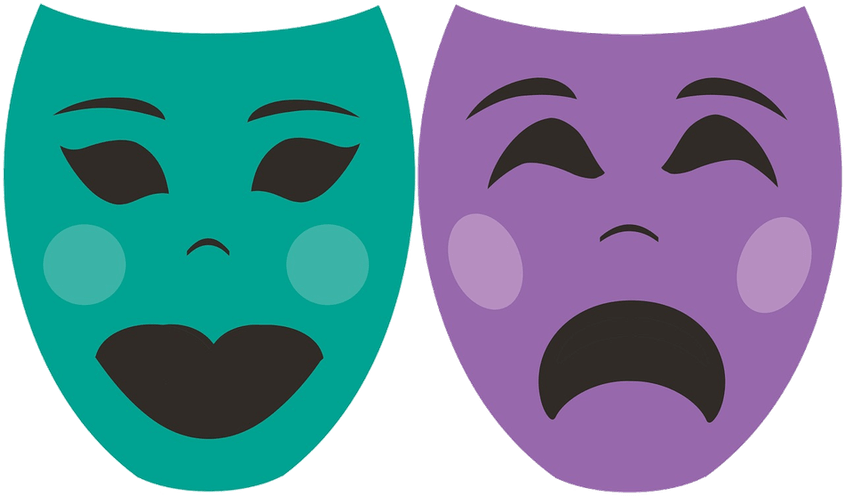Understand Your Emotions: A Dive Into Their World
When an emotion arises, it’s not a fleeting moment of sensation. It’s physiological and psychological responses working together to send you a message.
Your heart may beat faster, your breath may quicken, and your face might light up with expressions that tell a thousand stories.
Learning to manage your emotions is a vital skill with profound benefits. When you learn to identify what you are feeling and why, you can begin to understand the triggers that lead to less desirable reactions.
This knowledge equips you with the power to choose how to respond, rather than being at the mercy of your initial emotional reactions. It arms you with the ability to face challenges with a clear mind.
But emotions don’t stop at your personal bubble. One of their functions is to connect you with others. They allow you to step into someone else’s shoes. You can feel their joys, sorrows, and everything in between. Understanding your emotions is key for meaningful connections.
Related article: Embrace Your Emotions: The Key to a More Empowered You
Between stimulus and response, there is a space. In that space lies our freedom and power to choose our response. In our response lies our growth and freedom.
– Viktor Frankl
The Function of Emotions in Self-Improvement
Another purpose of emotions is to guide and propel you forward on your journey of self-improvement.
There are two main emotions: love and fear. Every other emotion comes from these two.
Love-based emotions fill your heart with warmth, hope, and inspiration. These are emotions like peace, joy, and gratitude. They propel you forward, guiding you toward your dreams and aspirations.
Imagine you’re embarking on a new project that ignites your passion. Positive emotions will be your allies. They will fuel your enthusiasm and infuse your actions with a sense of purpose. They empower you to take risks, embrace challenges, and set your sights on a brighter future.
These emotions act as catalysts for creativity, motivation, and resilience. They provide the encouragement you need to keep pushing forward. When you feel hope or optimism, you are more likely to engage in constructive behaviors that support personal growth. And, they enhance cognitive processes, making it easier to see opportunities for development.
Plus, positive emotions encourage you to try new things and adjust, essential for navigating challenges and achieving long-term success.
When there is hope in the future, there is power in the present.
Zig Ziglar
Conversely, negative emotions are also important in the self-improvement process. They serve as indicators of areas in your life that may need attention. Feelings of sadness, anger, or fear can act as signals, prompting introspection and motivating change.
For example, dissatisfaction with your current state can be a powerful motivator for seeking new knowledge or skills. Anger can move you to take action when you recognize injustice. Sadness can foster empathy and compassion for others.
Managing negative emotions gives you the ability to withstand setbacks and persevere towards your goals. Leveraging both the constructive and cautionary roles of these emotions is crucial for personal growth.
Fear-based emotions can also present challenges on your path to self-development. They can act as resistance, holding you back from embracing new opportunities. The War of Art, by Steven Pressfield, is an awesome book on understanding and navigating resistance.
So, to recognize the source of your emotions, whether they come from love or fear, develop your self-awareness. When you’re aware of your emotions and their purpose, they can be trustworthy guides. They can help you make intentional decisions and build stronger relationships.
By understanding positive and negative emotions, you have more tools for growth. You can celebrate your victories, drawing strength from the joy they bring. And when faced with challenges, you can channel the energy from negative emotions into inspired action.
Related article: Emotions and Personal Growth: 9 Practical Ways to Use Your Emotions for Self-Improvement

Understanding the Links Between Thoughts, Emotions, Behaviors, and Decisions
Emotions underlie the thoughts and behaviors shaping your daily experiences. They are not mere reactors to stimuli, but profound influencers of your thought patterns, decisions, and behaviors. When you feel joy, your thoughts become more positive, and your behaviors become more open and engaging. But emotions like fear can lead to more negative thoughts and withdrawal behaviors. For example, picture yourself standing on the edge of a high diving board. You’re pondering whether to take the plunge. As you start to wonder and think about the situation, it will go something like this:– Let’s say you have positive beliefs about it, so you start experiencing positive emotions. You’re excited to jump, and it’s so fun that it inspires you to do it again.
– But, if you’ve had a bad experience with a diving board or if you can’t swim, the thought of jumping may seem too risky. Fear takes over, quickening your heartbeat and making your palms sweaty. You take a step back, and miss out on the exciting experience.
Emotions influence your preferences, judgments, and decision-making. This means that by managing your emotions, you can direct your thoughts and actions, and steer your life towards better outcomes. Thus, when you maintain a positive mindset, your emotions align with optimism, hope, and possibility. A positive mental attitude guides you toward making decisions that are in alignment with your dreams and goals. Related article: Positive Thinking: Your Ultimate Guide to Cultivating a Positive Mindset for Personal Growth Awareness of the connection between thoughts, emotions, behaviors, and decision-making leads to better mental health and fulfilling experiences. It shows you that changing one element can ripple through the system, influencing your well-being. For instance, by adopting more positive thinking patterns, you can influence your emotional state. This in turn can lead to more positive behaviors and better decision-making. Let’s say you’re faced with a challenging situation. Instead of reacting with anger, self-awareness allows you to take a step back and check your emotions. You may realize that you’re feeling threatened or undervalued. Then, you can choose how you’d like to respond. This will help you find constructive solutions and foster better relationships. Related article: The Power of Self-Awareness in Managing Your Emotions: A Step-by-Step Guide


0 Comments